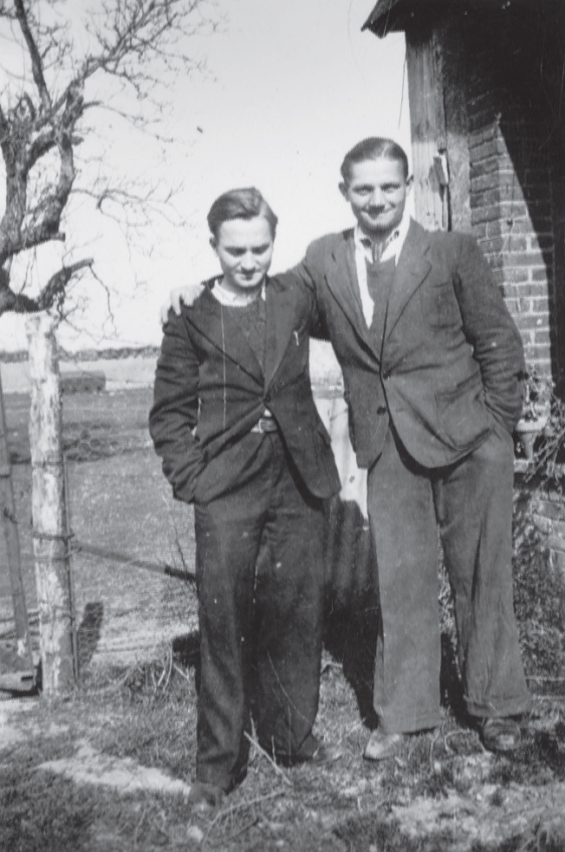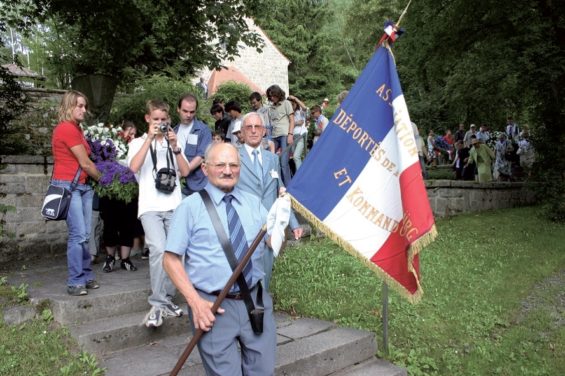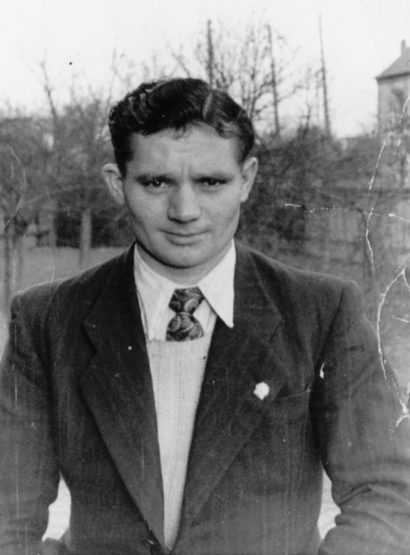Roger Caillé
born December 26, 1923
![]()
Roger Caillé after his return home, 1945/1946 (private collection)
A Work Accident as the Only Way Out
In 1943, the baker Roger Caillé, then nineteen years old, joined the resistance in the Department of Tarn in the Languedoc. In March 1944, he agreed to meet other members of the resistance at a farm to slaughter some cattle to provide food. The Gestapo discovered the partisans at the farm and arrested them.
On April 27, 1944, Roger Caillé was deported along with 1,700 other prisoners from the Compiègne police detention camp to Auschwitz-Birkenau. Shortly thereafter, Caillé was transported by the SS to the Buchenwald concentration camp and then to the quarantine camp at Flossenbürg. He was then transferred to the Hersbruck subcamp. The living conditions at the subcamp were catastrophic, and Roger Caillé was forced to carry out brutally heavy labor building a system of tunnels. In March 1945, Caillé was at the end of his strength. In order to be classified as unfit for work, he placed one of his fingers under the wheel of a trolley. His finger was amputated without anesthetic. In the convalescent barracks, Roger Caillé contracted typhoid. In mid-April 1945, he was transported along with other extremely sick prisoners in a freight train to Dachau.

Roger Caillé (right) with a friend, 1943 (private collection)
After Roger Caillé’s liberation, the US military doctors determined that he also had pleurisy and dysentery. Caillé was not able to return to work until 1946. He married in 1952, and became the father of five children. Thirty years after his liberation, Roger Caillé returned for the first time to the sites of his ordeal. Since then, he has regularly attended memorial services in order to keep the memory of his experiences alive. And, as Caillé says, to let new friendships develop.

Roger Caillé as the flag bearer for the French prisoners’ organization “Association des Déportés et Familles des Disparus du Camp de Concentration de Flossenbürg et Commandos” at the memorial service at Flossenbürg, 2004 (Flossenbürg Concentration Camp Memorial)
